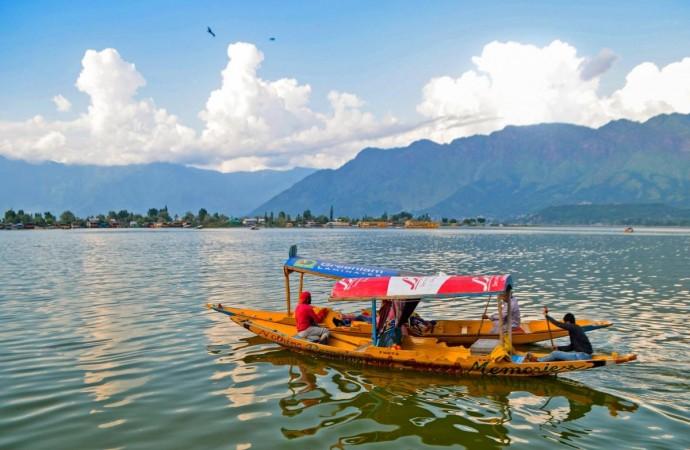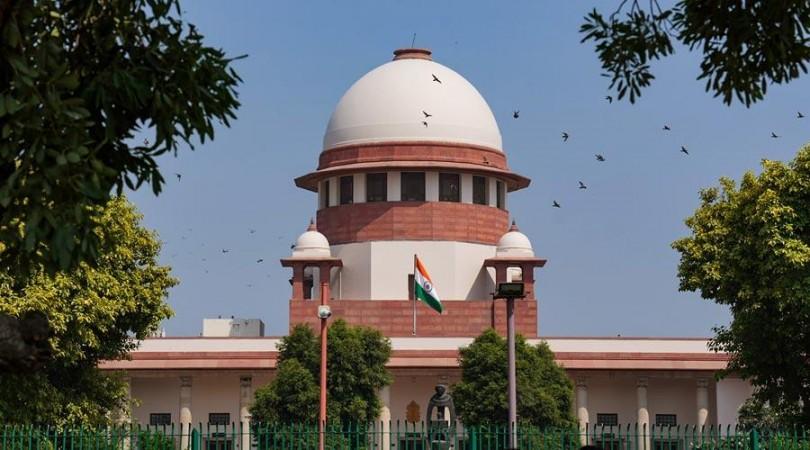
The year 2023 changed the political narrative of the Union Territory of Jammu and Kashmir after the Supreme Court endorsed the decision of the BJP-led NDA government at the Centre to revoke Article 370 and to bifurcate the erstwhile state into two Union Territories (UTs).
Before December 11, when the Supreme Court delivered its historic verdict on Article 370, politics in Jammu and Kashmir revolved around the promise of restoring this article. Two main Kashmir-centric parties namely the National Conference (NC) and Peoples' Democratic Party (PDP) were asserted to bring back the post-August 5, 2019 position in Jammu and Kashmir.
After the Apex Court upheld the abrogation of articles 370 and 35-A, the tune of the political parties changed. The demand for the restoration of these articles has been replaced with the call to grant statehood to Jammu and Kashmir and hold assembly elections.
While demanding the restoration of statehood, the former chief minister and the president of the National Conference, Dr. Farooq Abdullah, said that the people of J&K deserve to have a popular government at the earliest.
While extending New Year greetings to the people, he said that the government will understand the expectations and aspirations of the people of Jammu and Kashmir and hold the elections as soon as possible.

Supreme Court upheld scrapping of Article 370 on December 11
On December 11, the Supreme Court upheld the abrogation of Article 370 while giving its verdict on petitions challenging the August 5, 2019 decision of the Union Government.
The apex court ruled that the President's order to scrap Article 370, revoking Jammu and Kashmir's special status was not malafide and was valid. The five-judge Constitution Bench, headed by Chief Justice DY Chandrachud, gave a unanimous verdict on the batch of pleas challenging the abrogation.
The five-judge Constitution Bench, comprising Justices Sanjay Kishan Kaul, Sanjiv Khanna, BR Gavai, and Surya Kant, apart from CJI Chandrachud, delivered the verdict. The court began hearing the batch of pleas challenging the abrogation of Article 370 on August 2, 2023. The court had reserved its verdict in the matter on September 5.
CJI Chandrachud pointed out that not every decision of the government can be challenged. The apex court stated that Article 370 was a temporary provision to serve as an interim process. It was an interim arrangement due to war conditions in the state, the Supreme Court held.
Government directed to conduct assembly elections in J&K
The Supreme Court also directed the Election Commission to take necessary steps for holding elections to the legislative assembly of Jammu and Kashmir by September 30 next year.
Assembly elections were last held in Jammu and Kashmir in 2014 and are long overdue as four years have passed since the Jammu and Kashmir Reorganisation Act was passed by Parliament.
The panchayat and local body polls were last held in 2018 and were due in November-December this year. However, these elections have also been deferred without any explanation being offered by the administration.
Although the security situation in the valley improved during the year, terrorists carried out targeted attacks on minority community members and security forces, both off-duty and on-duty.
In August 2019, the Centre announced the revocation of the special status of Jammu and Kashmir granted under Article 370 and bifurcated the region into two Union Territories — Jammu and Kashmir and Ladakh.

















